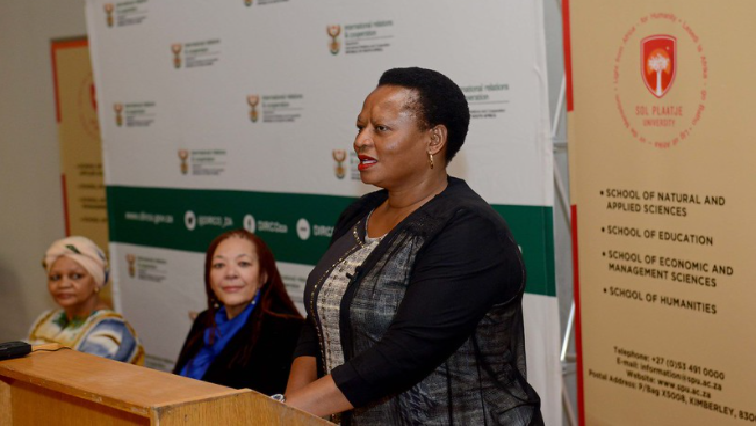The Department of Basic Education has launched an anti-bullying campaign in Orange Farm, south of Johannesburg. This is part of a nationwide programme to eradicate bullying at schools.
It comes in the wake of the death of Lufuno Mavhungu, a Limpopo learner who committed suicide after a video of her being bullied went viral on social media over a month ago.
Bullying can take many forms at schools. It can be physical, emotional, or even cyber-bullying.
Basic Education to introduce awareness programmes against bullying in schools
Today’s launch was aimed at encouraging learners to report bullying. It was also aimed at raising awareness about drug use at schools.
Learners from different schools in the area participated in the event. This learner from Orange Farm says bullying is rife at their school.
“Some of us are even scared to go to school because we are the victims of bullying. And being bullied is not good. They think they are stronger than us, so they do not treat us equally. So they bully us.”
A 2014 study on bullying by the Basic Education Department in Gauteng found that physical bullying in secondary schools stood at 34.1% and cyberbullying on 46.1%. This learner says they don’t even bother to report bullying because nothing changes.
“Some of the boys at school come with knives where they try to fight with each other. They take some of our school bags and go sell our books in the streets. When we report it does not go anywhere because some of us have different situations. Our parents go to work during the week and they cannot attend school. And when we tell teachers, teachers are also scared because some of the boys bring their gangs at school.”
Parents have been urged to monitor their children’s cellphones to prevent cyberbullying and also to establish if their children are experiencing some form of bullying.
Deputy Minister of Basic Education, Regina Mhaule says they will be going around the country to address bullying.
“Today we are here to say bullying is not allowed in our schools. Because after you have bullied, you have lost your freedom. You are no longer free like other children. We, as government, take care of both the victim and the perpetrator because most of the perpetrators in schools are young individuals who cannot be treated as adults in court.”
Mhaule says the issue of bullying is deeply rooted and it needs to be addressed at homes and schools.
Basic Education says families, communities needed in intervention






